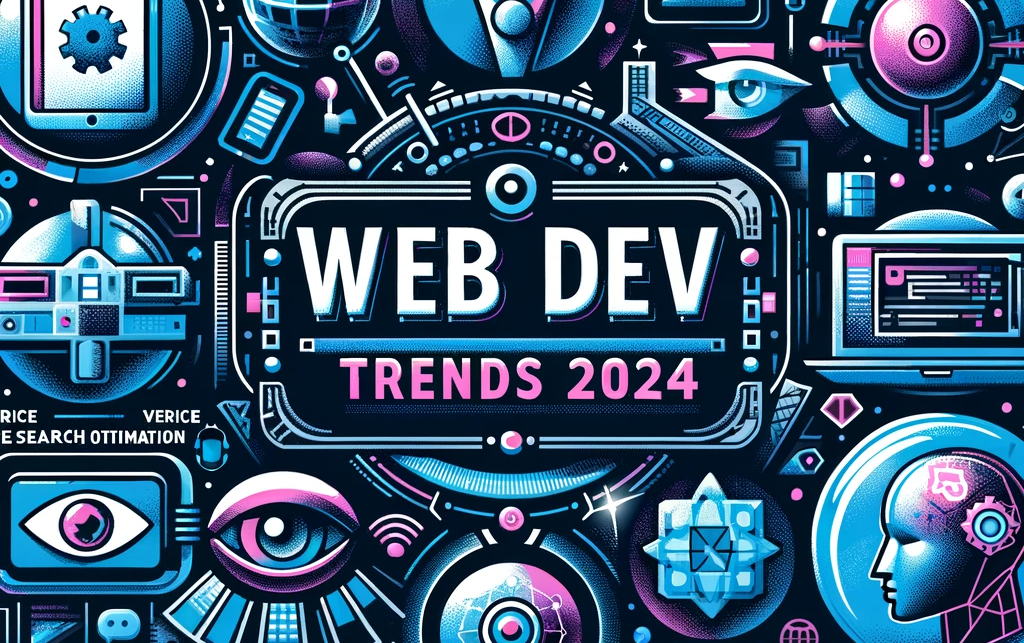The web development landscape for 2024 is gearing up to be an exciting mix of innovation and user-centric design, driven by evolving technologies and the need to cater to ever-changing user expectations. Here are some key trends that are shaping the future of web development:
- Progressive Web Apps (PWAs): Merging the capabilities of mobile applications and web pages, PWAs offer a native app-like experience directly from the web browser. They are increasingly favored due to their speed, functionality, and the ability to work offline or on low-quality networks.
- Accelerated Mobile Pages (AMP): Originally developed by Google and Twitter, AMP is an open-source framework designed to create fast-loading web pages. This trend aims to streamline user experience by providing a simplified and efficient way to consume content on mobile devices.
- Voice Search Optimization: As voice-assisted devices become more prevalent, optimizing for voice search is becoming crucial. Businesses that adapt to this trend can enhance user experience by delivering information swiftly and accurately through voice interactions.
- AI-Powered Chatbots: Evolving from simple automated responders to sophisticated systems, AI chatbots in 2024 are expected to offer more human-like interactions by understanding and responding to user intent through advanced natural language processing and machine learning.
- Augmented Reality (AR): AR continues to blur the lines between digital and physical worlds, providing immersive experiences that enhance user engagement and satisfaction, especially in sectors like e-commerce, education, and healthcare.
- Multi-Experience Development: This approach focuses on delivering a consistent and seamless user experience across various devices and platforms, utilizing different interaction modes like touch, voice, and vision.
- Headless CMS: The trend towards headless content management systems is gaining momentum, allowing developers to use their preferred frontend frameworks while ensuring a seamless content editing experience across different devices and layouts.
- Micro Frontends: This architectural style extends the concept of microservices to the frontend, enabling smaller, independent teams to work on different aspects of the UI. This approach enhances development speed, flexibility, and scalability.
- Mobile Optimization: With mobile internet usage on the rise, optimizing for mobile devices is more important than ever. This includes adopting mobile-first design principles and ensuring responsive layouts for a seamless user experience across all devices.
- GraphQL Adoption: GraphQL, a query language developed by Facebook, is transforming how developers build APIs and how clients interact with them, offering more efficient and precise data retrieval options.
As we move further into 2024, these trends highlight the importance of creating engaging, efficient, and adaptable digital experiences, catering to the dynamic needs of users and staying ahead in the competitive digital landscape.
